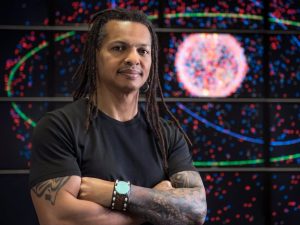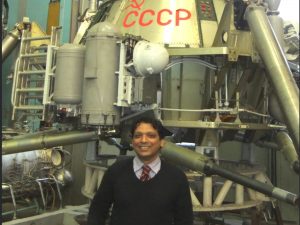
Rachel Lindsay ‘05 is an ecological designer, artist, and local food advocate. She is a worker-owner at Regenerative Design Group, a small firm based in Western Massachusetts. Rachel holds an MS in ecological design from The Conway School and a BA in anthropology from Wesleyan. As a Wes student, she was one of the founders of Long Lane Farm!
stousi
o’donnell ’19 takes action at climate museum
 Maggie O’Donnell ’19 is the research and program associate at The Climate Museum in New York City, where she coordinates new aspects of the Museum’s online presence including the Online High School Internship Program and the Climate Ambassador Card. Maggie was a religion and environmental studies major and art history minor at Wesleyan and a member of our 2018-19 COE Think Tank.
Maggie O’Donnell ’19 is the research and program associate at The Climate Museum in New York City, where she coordinates new aspects of the Museum’s online presence including the Online High School Internship Program and the Climate Ambassador Card. Maggie was a religion and environmental studies major and art history minor at Wesleyan and a member of our 2018-19 COE Think Tank.
o’neil, kulick ’21 & park ’22 collaborate on als research
 Each year the College of the Environment provides faculty-student research grants to provide faculty and their students an opportunity to conduct research that would not have been otherwise possible. Research in the O’Neil lab is focused on understanding the structure-function relationship of proteins involved in neurodegenerative diseases, specifically ALS. Thanks to a COE faculty-student research grant and a COE summer fellowship, Alison O’Neil, assistant professor of chemistry, neuroscience major Daniel Kulick ’21 and molecular biology and biochemistry & neuroscience and behavior double-major Josephine Park ’22 were able to collaborate on Professor O’Neil’s investigation of the persistent toxicant cis-Chlordane as an environmental trigger of sporadic ALS.
Each year the College of the Environment provides faculty-student research grants to provide faculty and their students an opportunity to conduct research that would not have been otherwise possible. Research in the O’Neil lab is focused on understanding the structure-function relationship of proteins involved in neurodegenerative diseases, specifically ALS. Thanks to a COE faculty-student research grant and a COE summer fellowship, Alison O’Neil, assistant professor of chemistry, neuroscience major Daniel Kulick ’21 and molecular biology and biochemistry & neuroscience and behavior double-major Josephine Park ’22 were able to collaborate on Professor O’Neil’s investigation of the persistent toxicant cis-Chlordane as an environmental trigger of sporadic ALS.
poulos, detre ’22 explore big bend dataset
 Each year the College of the Environment provides faculty-student research grants to provide faculty and their students an opportunity to conduct research that would not have been otherwise possible. Helen Poulos, adjunct assistant professor of environmental studies, and environmental studies & earth and environmental sciences major Ally Detre ‘22 launched a faculty-student research collaboration during the 2020-21 academic year working on a dataset documenting native woody plant recovery in the Big Bend Region of the Rio Grande. Ally received a COE summer fellowship in 2021 that allowed her to gain first-hand knowledge of the area with a trip to Big Bend National Park to resurvey a stretch of the river that experienced recent native riparian plant recovery and to work as a GIS technician for the Science and Resources Management division of Big Bend National Park.
Each year the College of the Environment provides faculty-student research grants to provide faculty and their students an opportunity to conduct research that would not have been otherwise possible. Helen Poulos, adjunct assistant professor of environmental studies, and environmental studies & earth and environmental sciences major Ally Detre ‘22 launched a faculty-student research collaboration during the 2020-21 academic year working on a dataset documenting native woody plant recovery in the Big Bend Region of the Rio Grande. Ally received a COE summer fellowship in 2021 that allowed her to gain first-hand knowledge of the area with a trip to Big Bend National Park to resurvey a stretch of the river that experienced recent native riparian plant recovery and to work as a GIS technician for the Science and Resources Management division of Big Bend National Park.
how to think like an afrofuturist with ingrid lafleur
 On April 17, 2021, the College of the Environment welcomed Ingrid LaFleur for her lecture “How to Think LIke an Afrofuturist.” LaFleur is the founder of The Afrofuturist Strategies Institute (TASI) and a globally recognized curator, design innovationist, pleasure activist, and Afrofuturist committed to exploring and implementing forward-thinking solutions across multidisciplinary industries including but not limited to art, technology, education, social enterprise, and finance. Her extended biography can be read on her website.
On April 17, 2021, the College of the Environment welcomed Ingrid LaFleur for her lecture “How to Think LIke an Afrofuturist.” LaFleur is the founder of The Afrofuturist Strategies Institute (TASI) and a globally recognized curator, design innovationist, pleasure activist, and Afrofuturist committed to exploring and implementing forward-thinking solutions across multidisciplinary industries including but not limited to art, technology, education, social enterprise, and finance. Her extended biography can be read on her website.
near-earth space with moriba jah
 On April 5, 2021, the College of the Environment welcomed Moriba Jah, associate professor at The University of Texas at Austin, to present his lecture Near-Earth Space: The Lost Ecological Pleiad. The Earth has a number of ecosystems we can call an ecological Pleiades. To date, these ecological Pleiades have been constrained to the land, oceans, and air. However, there is an additional ecosystem, near-Earth space, which has yet to be globally acknowledged. To this end, Jah’s lecture focused on near-Earth space as a “lost” ecological Pleiad, comprised of “some abiotic objects such as micrometeoroids, a few humans in the Space Station, and a large number of anthropogenic space objects as a consequence of our technological developments.” In his lecture, Jah explored the known evolution of this Lost Pleiad, and underscored the need for its environmental protection.
On April 5, 2021, the College of the Environment welcomed Moriba Jah, associate professor at The University of Texas at Austin, to present his lecture Near-Earth Space: The Lost Ecological Pleiad. The Earth has a number of ecosystems we can call an ecological Pleiades. To date, these ecological Pleiades have been constrained to the land, oceans, and air. However, there is an additional ecosystem, near-Earth space, which has yet to be globally acknowledged. To this end, Jah’s lecture focused on near-Earth space as a “lost” ecological Pleiad, comprised of “some abiotic objects such as micrometeoroids, a few humans in the Space Station, and a large number of anthropogenic space objects as a consequence of our technological developments.” In his lecture, Jah explored the known evolution of this Lost Pleiad, and underscored the need for its environmental protection.
Jah opened the lecture by giving context to the sheer number of human-made objects in Earth’s orbit. The assumed population of space objects is roughly half a million, ranging in size from a speck of paint to the International Space Station. Jah stressed that of that assumed half million, we can only measure about 30,000, and the total space population is unmeasurable with the precision of current instruments. He also noted that out of those potential 500,000 objects, only 3,500 are functioning, saying, “Much less than 1 percent of everything up there that we’re responsible for actually serves a purpose.”
departure gates with asif siddiqi
 Wesleyan’s College of the Environment and History Department invited Dr. Asif Siddiqi, Professor of History at Fordham University in New York, to host his talk, Departure Gates: Postcolonial Histories of Space on Earth, on March 2, 2021.
Wesleyan’s College of the Environment and History Department invited Dr. Asif Siddiqi, Professor of History at Fordham University in New York, to host his talk, Departure Gates: Postcolonial Histories of Space on Earth, on March 2, 2021.
Siddiqi specializes in the history of science and technology, and is the author of The Red Rockets’ Glare: Spaceflight and the Soviet Imagination, 1857-1957 (Cambridge, 2010), among other works surrounding the history of Soviet space technology. His current research interests have expanded to include global histories of science and technology, particularly in South Asia and Africa. These themes in Siddiqi’s work are what led him to be invited to campus as a guest of the College of the Environment’s 2021 Think Tank. Associate Professor of History Victoria Smolkin, who introduced Siddiqi, described the focus of this year’s Think Tank as “habitability in a cosmological, planetary, and ethical perspective.”